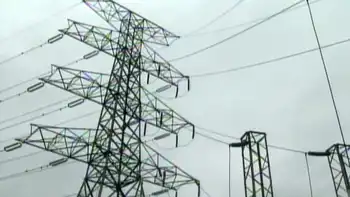Colorado residents pay off nuclear plant decommission bill
DENVER, COLORADO - Colorado residents have finished paying off the bill to decommission the former Fort St. Vrain nuclear power plant northeast of Denver near Platteville.
In 1989, Public Service Co. closed Fort St. Vrain because of ongoing operational problems. The plant had opened 13 years earlier as the country's first gas-cooled nuclear power plant.
The state Public Utilities Commission allowed Public Service in 1993 to charge customers $1 per month to cover the $125 million cost of decommissioning the plant. The payoff was complete in August.
Xcel Energy, which now owns Public Service, reopened Fort St. Vrain in 2001 after spending $283 million to convert it to a natural- gas-fired power plant.
Mark Stutz, an Xcel Energy spokesman, said the conversion was a good use of existing assets.
"All in all, it's a very reliable facility and the cornerstone of our fleet of plants," he said.
The plant generates enough power to serve 750,000 families and is the biggest power plant in Colorado.
As natural-gas prices have risen, proponents of alternative energy, including President Bush, are talking again about nuclear energy as a viable power source.
But when it comes to building any new power plant, much less a nuclear one, Americans say "no way," said Frank Barnes, head of a new utility engineering and management master's degree program at the University of Colorado at Boulder.
"Nobody wants a power plant next to them - that's a major problem," he said.
Stutz said Xcel is seeking bids to add another 750 megawatts of renewable energy to its daily power generation to meet peak customer demand, which has risen 60 percent in the last decade. The number of Xcel customers is up 20 percent over the same time.
Related News

Clocks are running slow across Europe because of an argument over who pays the electricity bill
LONDON - Over the past couple of months, Europeans have noticed time slipping away from them. It’s not just their imaginations: all across the continent, clocks built into home appliances like ovens, microwaves, and coffee makers have been running up to six minutes slow. The unlikely cause? A dispute between Kosovo and Serbia over who pays the electricity bill.
To make sense of all this, you need to know that the clocks in many household devices use the frequency of electricity to keep time. Electric power is delivered to our homes in the form of an alternating current, where the direction…




